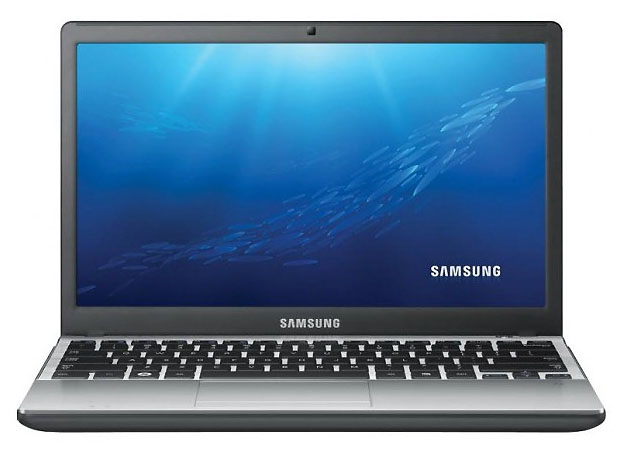
Intel has been promising its latest Sandy Bridge second-generation Core processors will propel the development of new ultrabooks: lightweight, super-thin notebooks that will become mainstream machines for personal computing. Now, Samsung is starting to make good on its promise with its Series 3 notebook computer, now on sale in the United States. With screen sizes ranging from 15.6 down to 11.6 inches, the Series 3 notebooks start at just 2.8 pounds and are among the least expensive Sandy Bridge systems on the market: instant rebates have prices circling $600 for the 11.6-inch model.
The 11.6-inch Samsung Series 3 sports a second-generation Intel Core i3-2357M processor running at 1.3 GHz, Intel HD graphics, and 4 GB of memory: the display offers a 1.366 by 768-pixel native resolution, and the system sports a 4-in-1 media card reader, Bluetooth 3.0, and 802.11b/g/n Wi-Fi. For peripherals, the system offers VGA, HDMI, and USB connectivity—but there doesn’t seem to be an optical drive on board, and the system relies on a 320 GB traditional hard drive rather than SSD drives Intel has been touting for ultrabooks. Still, the price is appealing, with units starting as low as $600 from retailers after rebates.
Other entries in the Series 3 series sport 12.5-, 13.3-, 14-, and 15.6-inch screen sizes, step up to second-generation Core i5 processors, and offer built-in DVD±RW optical drives. Base prices for all the larger systems start at $749, although retailers are already discounting those down just like the 11-6-inch model.
For folks who are even more cost-conscious—or just Intel-averse—Samsung is also making a version of the Series 3 with an AMD Quad-Core A6 processor and a 15.6-inch display…with prices starting under $600.
The Series 3 don’t quite conform to Intel’s ultrabook vision: they’re still a little thicker than Intel imagined, and roll with traditional hard drives. But for folks looking for inexpensive mainstream notebooks with Sandy Bridge power, those distinctions may not be too important.
Editors' Recommendations
- The Galaxy Book 3 Ultra is Samsung’s most powerful laptop ever
- Best Buy just started a 3-day flash sale – all the best deals


